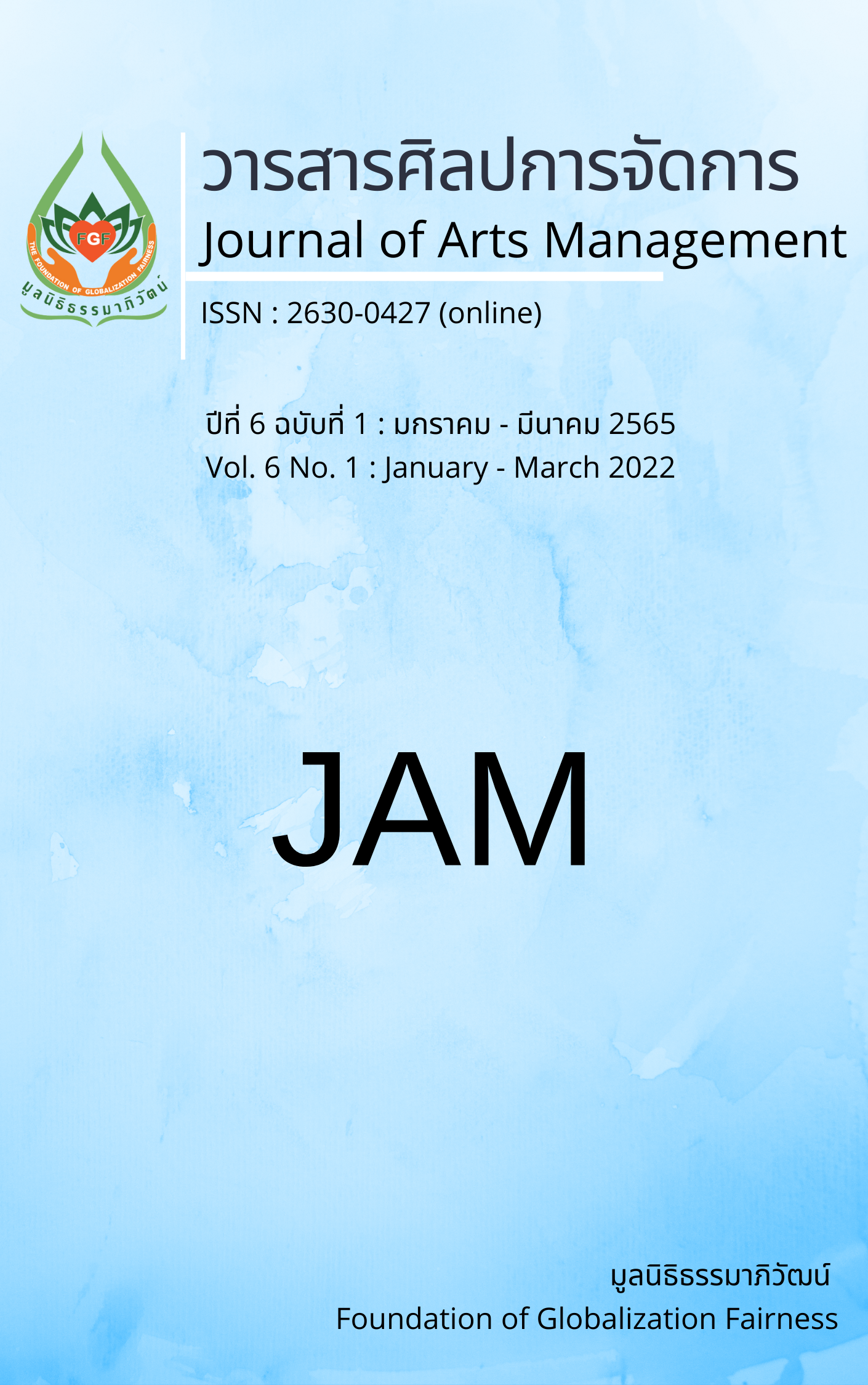The Strategic Management for Competitive Advantage Improvement of Halal Food Business in Pattani Province
Main Article Content
Abstract
The study “The Strategic Management for Competitive Advantage Improvement of Halal Food Business in Pattani Province” aimed to study problems and obstacles to competitive advantage improvement of halal food businesses in Pattani Province, strategic management for the competitive advantage of halal food businesses in Pattani Province, and also strategic management initiation for the competitive advantage of Halal food business in Pattani Province. This research aimed to study the business of Chokudomrat and the community enterprise of Orangpuntai. It was mixed-method research. The quantitative research used questionnaires to collect data from 400 stakeholders, and the qualitative research used in-depth interview techniques with by semi-structured interview questionnaires.
The result was found that: The research finding of theories and practices showed the internal factors and external factors related and impacted the competitive advantage and improvement of the halal food business in Pattani Province. The important problem was the impact of the crisis on the demand of customers.
The important strategic management for improving competitive advantage included resource identification in the production process, application of local wisdom to food science, turning crisis into opportunity, halal production, online marketing, efficient logistics, total quality management, own supplier, and premier product positioning.
The primary strategic management initiative for the competitive advantage of the halal food business in Pattani Province was to create the resources to strengthen the internal factors and to prevent and get rid of the threat of external factors, i.e., the environment of competition. Besides, it needed a risk management plan to sustain a competitive advantage.
Article Details

This work is licensed under a Creative Commons Attribution-NonCommercial-NoDerivatives 4.0 International License.
Views and opinions appearing in articles in the Journal of Arts of Management It is the responsibility of the author of the article. and does not constitute the view and responsibility of the editorial team I agree that the article is copyright of the Arts and Management Journal.
References
Barney, J. (1991). Firm Resources and Sustained Competitive Advantage. Journal of Management, 17(1), 99-120.
Dobbs, M. E. (2014). Guidelines for Applying Porter's Five Forces Framework: A Set of Industry Analysis Templates. Competitiveness Review, 24(1), 32–45.
Grant, R. M. (1991). The Resources-Based Theory of Competitive Advantage: Implications for Strategy Formulation. California Management Review, 33(3), 114-135. https://doi.org/10.2307/41166664
Habbershon, T., & Williams, M. (1999). A Resource Based Framework for Assessing the Strategic Advantages of Family Firms. Family. Business Review, 12(1), 1-25. https://doi.org/10.1111/j.1741-6248.1999.00001.x
Itucas, C. (2021). Five Forces Model Based Upon Michael E. Porter’s Work. https://www.academia.edu/38586072/Five_Forces_Model_Based_Upon_Michael_E_Porters_Work
Killen, C. P., Jugdev, K., Drouin, N., & Petit, Y. (2012). Advancing Project and Portfolio Management Research: Applying Strategic Management Theories. International Journal of Project Management, 30(5), 525-538. DOI:10.1016/j.ijproman.2011.12.004
Magretta, J. (2011). Understanding Michael Porter: The Essential Guide to Competition and Strategy. Harvard Business Review Press.
Pattani Province. (2018). Debrief on Pattani Province 2018. IQ Media.
Porter, M. E. (2008). The Five Competitive Forces That Shape Strategy. Harvard Business Review, 86(1), 79–93.
Priem, R. L., & Butler, J. E. (2001). Is the Resource-Based “View” a Useful Perspective for Strategic Management Research?. The Academy of Management Review, 26(1), 22-40.
Ratchattranont, W. (2019). Research Method & Techniques in Political Science. Kasetsart University.
Sanitlou, N., Sartphet, W., & Naphaarrak, Y. (2019). Sample Size Calculation Using G*Power Program. Journal of Suvarnabhumi Institute of Technology (Humanities and Social Sciences), 5(1), 496-507.
The Halal Standard Institute of Thailand. (2021). The Halal Standard Institute of Thailand. https://www.halalstandard.or.th/about-us
Widaningrum, A., & Damanik, J. (2018). Stakeholder Governance Network in Tourist Destination: Case of Komodo National Park And
Labuan Bajo City, Indonesia. In Proceedings of the 2018 Annual Conference of Asian Association for Public Administration: “Reinventing Public Administration in a Globalized World: A Non-Western Perspective” (AAPA 2018). DOI:10.2991/aapa-18.2018.42


